
In the past, the noted sinologue called Chinese contemporary literature "trash" and said Mo's works bore him. After the Nobel award, he said he had to "rethink" his views on Mo Yan, but still prefers Chinese poetry to novels. He believes the Chinese long contemporary novel "does not come up to international standards."
"Long Chinese novels (I am not talking about short stories or novelettes!) have too many flaws: too many protagonists (as in Ge Fei's works), only images and no thoughts (as in Su Tong's work). They very often read like a screen play, with too many mistakes, too many words. The more or less repetitious 'Brothers' (2008) by Yu Hua is an awful example. Facts, names and dates do not fit together. (Also, some reflect a reactionary world view, such as in Jiang Rong ('Wolf Totem,' 2004), among others," Kubin says.
"The hope for Chinese literature lies in poetry and in short stories or novelettes," says Kubin, who teaches Chinese philosophy and the Chinese-German relationship at the University of Bonn and at Beijing Foreign Studies University.
Many young Chinese writers say they have become more confident in themselves, after Mo won the prize.
Zhang Yueran, among the bestselling young writers, says "Mo's triumph indicates that Chinese literature has been truly accepted by the foreign literature world," which is a big encouragement for young writers. Zhang writes novels and is editor-in-chief of Li magazine.
Mo has always been considered among the top Chinese writers, and his books have been widely translated abroad, first introduced to English speakers by distinguished American translator Howard Goldblatt. His works have also been translated into Japanese, French, German, Swedish, among a dozen languages.
He has also come in for extensive criticism for his blunt language, extensive use of slang, cruel descriptions of violence and plain-spoken descriptions of sex.
Many critics say he should thank his translators, especially Goldblatt and the Swedish translator Anna Gustafsson Chen, who have softened and sometimes even deleted scenes.
Chen wrote on her weibo account that the Nobel jury read Mo's works in Swedish, French, German, English and other languages.
In Stockholm on Thursday, Mo and Chen will engage in a dialogue about his works.
According to Mo's Italian translator Patrizia Liberati, he sent his translators a message after the Nobel announcement to pay tribute to their work and share the honor. He also invited his translators as his Nobel guests, including Goldblatt, Liberati, Japanese translator Tomio Yoshida and French translator Noel Dutrait, among others. At the Beijing airport, he expressed appreciation to translators who have played an important role in introducing contemporary Chinese literature to an international audience.
 |  |

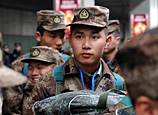
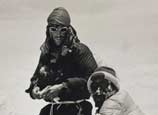
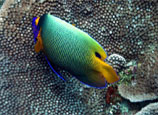
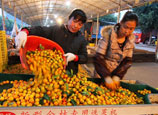
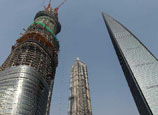








 Cumquat market in S China's Guangxi
Cumquat market in S China's Guangxi


![]()
